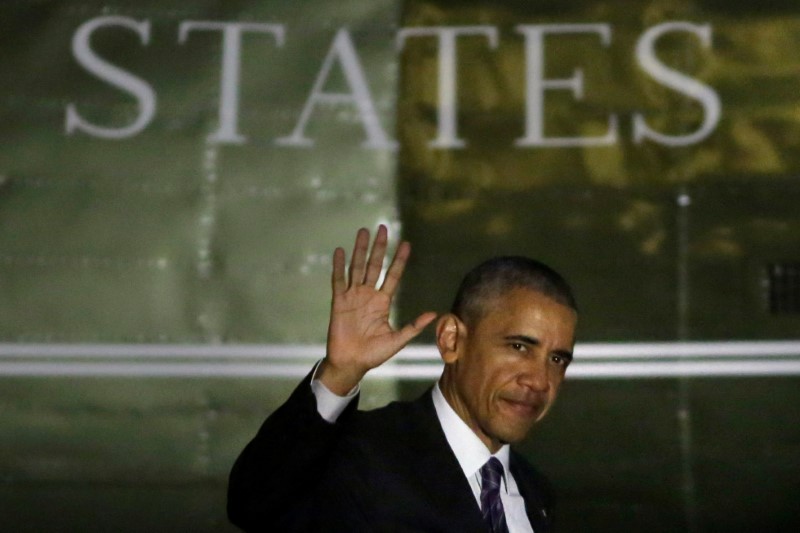By David Shepardson
WASHINGTON (Reuters) - The U.S. Environmental Protection Agency on Wednesday said it will push to lock in fuel efficiency standards central to outgoing President Barack Obama’s climate policy before the Trump administration takes over in January.
Automakers had appealed to President-elect Donald Trump, who has been critical of Obama's climate policies, to review the rules requiring them to nearly double fleet-wide fuel efficiency by 2025, saying they impose significant costs and are out of step with consumer preferences.
The EPA under law had to decide by April 2018 whether to modify the 2022-2025 model year vehicle emission rules requiring average fleet-wide efficiency of more than 50 miles per gallon. Instead, the agency said it will end the public comment period by Dec. 30, and could move to lock in the rules after then and before the Obama administration leaves office on Jan. 20.
The EPA in a statement said it concluded after a lengthy review that automakers can meet the 2025 standards.
Janet McCabe, EPA acting assistant administrator, told reporters the technical record could "arguably support strengthening the 2022 through 2025 standards," but the EPA believes it "is not the time to introduce uncertainty by changing the standard."
She denied the impending administration change prompted the decision, but the EPA website previously showed a timeline that suggested a decision on mid-term review was not expected until mid-2017.
The Alliance of Automobile Manufacturers, a trade group representing General Motors Co (NYSE:GM), Ford Motor (NYSE:F) Co, Toyota Motor Corp, Volkswagen AG (DE:VOWG_p) and others, blasted the decision, saying "this extraordinary and premature rush to judgment circumvents the serious analysis necessary to make sure the (vehicle) standards appropriately balance fuel efficiency, carbon reduction, affordability and employment."
The group said it looked forward to working with the Trump administration on revisions and that "the evidence is abundantly clear that with low gas prices, consumers are not choosing the cars necessary to comply with increasingly unrealistic standards."
It had previously asked Trump to review the automotive greenhouse gas rules, and other Obama administration actions that enable California and certain other states to mandate sales of electric vehicles.
Environmental groups applauded the administration move and said they expect the EPA to finalize the rules by Jan. 20.
"What's not to like about a plan, agreed to by the automakers, that cuts oil use, saves money at the pump and reduces pollution?" said Daniel Becker, director of the Safe Climate Campaign, a Washington-based group that supports strong climate action.
The Republican U.S. Congress or the Trump administration could seek to reverse or modify the rules. However, if the current EPA rules are locked in, it could make doing so more difficult and time consuming.
In 2011, Obama announced agreement with major automakers to raise fuel efficiency standards to 54.5 mpg, which the administration said would save motorists $1.7 trillion in fuel costs over the life of the vehicles but cost the auto industry about $200 billion over 13 years. In July, EPA said because Americans are buying fewer cars and more SUVs and trucks that they now estimate the fleet will average 50.8 mpg to 52.6 mpg in 2025.
The agreement included a mid-term review to decide whether the 2022-2025 model year requirements were feasible.

The California Air Resources Board Chair Mary Nichols said the EPA decision "provides solid support for continuation of the single national program to produce a new generation of clean vehicles."